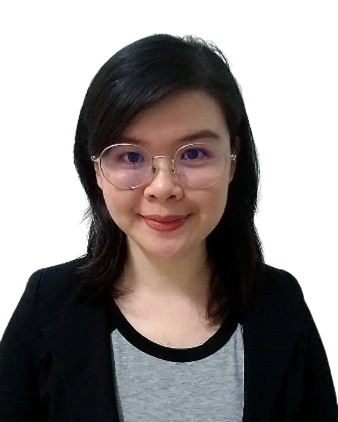
LING Suk Jiun
Assistant Professor Dr.
SDGs Focus




About Me
Dr. Ling has a PhD in Science, major in Medicinal Chemistry, and my research looks at how natural products and bioactive compounds can be developed into functional foods, nutraceuticals, and therapeutic leads. I am especially interested in chronic conditions such as diabetes and metabolic syndrome, using both laboratory experiments and computational modelling to study mechanisms and potential interventions. I also enjoy guiding students in research and sharing knowledge that connects science with everyday health.
PhD (Science, major in Medicinal Chemistry), School of Biosciences, Taylor’s University, Malaysia (2022)
MSc (Medical and Health Sciences), International Medical University, Malaysia (2013)
BSc (Hons) (Biotechnology), Monash University, Malaysia (2007)
BSc (Biotechnology), Monash University, Malaysia (2006)
Ordinary member of the Malaysian Society of Parasitology and Tropical Medicine (MSTPM), 2012-2013
Graduate Technologist by Malaysia Board of Technologist (Certification Number: GT23090215, awarded on 29 September 2023.
Research Interest
Dr. Ling's research lies at the interface of medicinal chemistry, immunology, and nutrition, with a focus on developing natural product–based solutions for chronic diseases. I am particularly interested in functional foods and nutraceuticals, exploring how bioactive compounds can be harnessed to improve metabolic health and support disease prevention.
I also work in computational drug discovery, applying molecular docking, QSAR modelling, and molecular dynamics simulations to identify and optimize potential therapeutic agents. These in silico approaches complement laboratory studies, allowing me to connect mechanistic insights with practical applications.
A growing part of my work investigates how diet, natural compounds, and metabolic regulation intersect with immune function. This integrative direction supports sustainable, evidence-based strategies for managing conditions such as diabetes and metabolic syndrome, while also contributing to innovation in the health and nutraceutical industries.
Research Project(s)
Current Courses Taught
CME224 Chemical Engineering Laboratory I
G0169 Occupational Safety and Health at Workplace
MBT405 Marine Natural Product and Drug
MED201 Physiology
Journal
Ling SJ. A genetic function approximation of 2D-QSAR predictive model for peroxisome proliferator-activated receptor-γ agonistic activity. Malays J Biochem Mol Biol. 2025.
Ling SJ, Wong SF, Mak JW, Ho TM. Morphology of Glycycometus malaysiensis, a domestic mite in Malaysia. Trop Biomed. 2019;36(1):263–73.
Ling J, Oh DL, Chia AYY. Molecular docking studies of glycyrrhizic acid (GA), glycyrrhetic acid (GE) and glabridin (GLA) with estrogen receptors (ERs). Biosci Biotechnol Res Asia. 2017;14(1):1–11.
Ling SJ. Two-dimensional quantitative structure activity relationship (2D-QSAR) analysis on estrogen receptor alpha (ERα) and beta (ERβ) agonists. Malays J Biochem Mol Biol. 2017.
Kew PE, Wong SF, Ling SJ, Lim PKC, Mak JW. Isolation and identification of mites associated with raw and commercial farm edible bird nests. Trop Biomed. 2015;32(4):761–75.
Wong SF, Chong AL, Mak JW, Tan J, Ling SJ, Ho TM. Molecular identification of house dust mites and storage mites. Exp Appl Acarol. 2011;55(2):123–33.
Conference
Ling SJ. In silico and in vitro assessment of glycyrrhizic and glycyrrhetic acids as peroxisome proliferator-activated-α agonists. Perdana University International Conference; 2021; Kuala Lumpur, Malaysia. Oral presentation.
Ling SJ. Receptor Cofactor Assay System (RCAS). 3rd SBS Research Methodology Seminar; 2016; Taylor’s University, Kuala Lumpur, Malaysia. Oral presentation.
Ling SJ. Molecular docking and ligand binding studies of glabridin as estrogen receptor-alpha activating ligand. 41st Annual Conference of the Malaysian Society for Biochemistry and Molecular Biology; 2016; Kuala Lumpur, Malaysia. Poster presentation.
Ling SJ. Structure-based virtual screening by molecular docking. 2nd SBS Research Methodology Seminar; 2015; Taylor’s University, Kuala Lumpur, Malaysia. Oral presentation.
Ling SJ. Quantitative Structure-Activity Relationship (QSAR) study. 1st SBS Research Methodology Seminar; 2014; Taylor’s University, Kuala Lumpur, Malaysia. Oral presentation.
Ling SJ. Potential uses of a monoclonal antibody for the detection of allergens of a house dust mite, Glycycometus malaysiensis. 48th Annual Conference of the Malaysian Society of Parasitology and Tropical Medicine; 2012; Kuala Lumpur, Malaysia. Oral presentation.
Ling SJ. Construction of cDNA library for storage mite Aleuroglyohus ovatus. National Biotechnology Seminar; 2010; Kuala Lumpur, Malaysia. Poster presentation.
Ling SJ. Cloning and sequencing of an Austroglycyphagus malaysiensis gene obtained from cDNA library. 14th International Congress of Immunology; 2010; Kuala Lumpur, Malaysia. Poster presentation.
Ling SJ. Emergence of storage mites as risk of occupational allergy and the diagnosis of these mites. 14th International Congress of Immunology; 2010; Kuala Lumpur, Malaysia. Poster presentation.
Ling SJ. Immunological characterization of Malaysian house dust mite antigens. 10th Malaysian Congress and Exhibition on Allergy and Immunology, Malaysian Society of Allergy and Immunology; 2009; Kuala Lumpur, Malaysia. Poster presentation.
First runner-up, Student Oral Presentation Competition. 48th Annual Conference of the Malaysian Society of Parasitology and Tropical Medicine; 2012; Kuala Lumpur, Malaysia.
